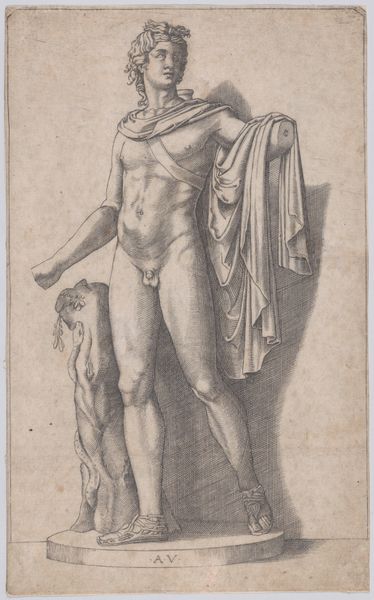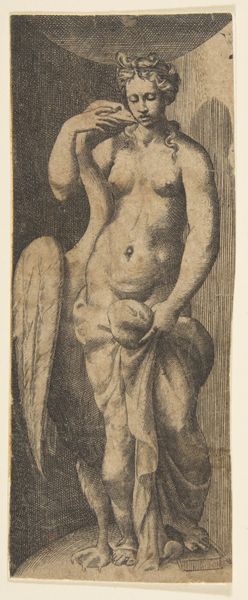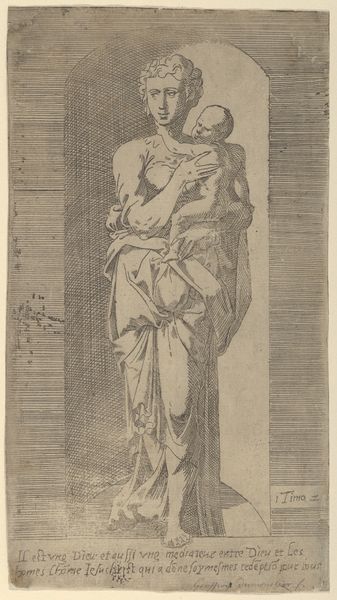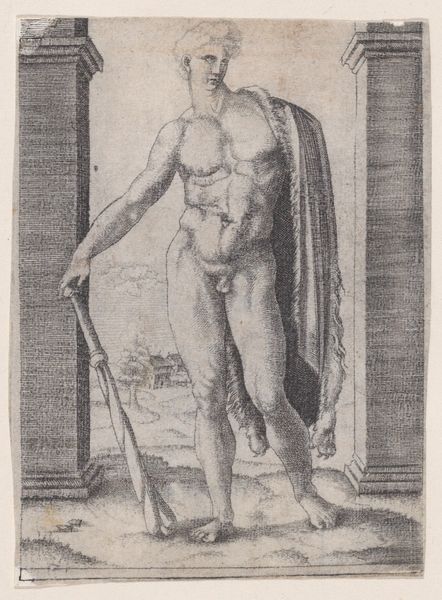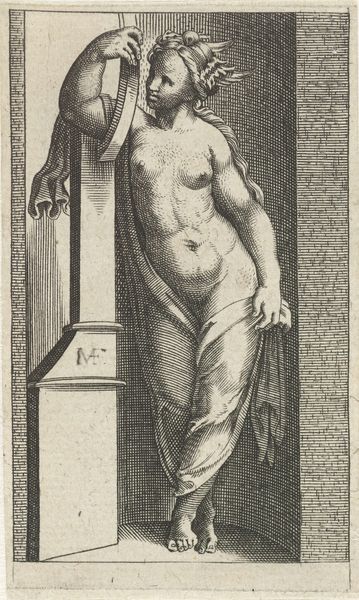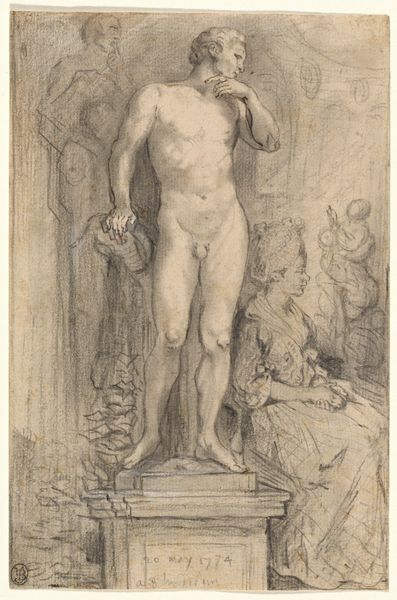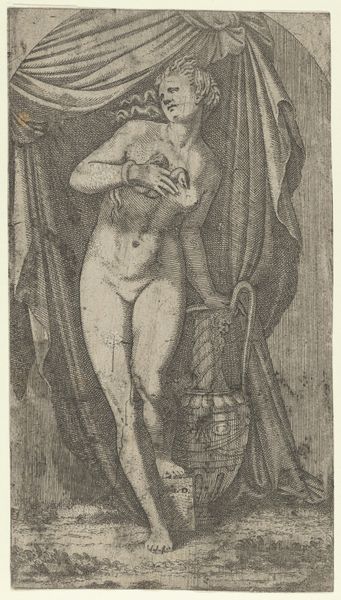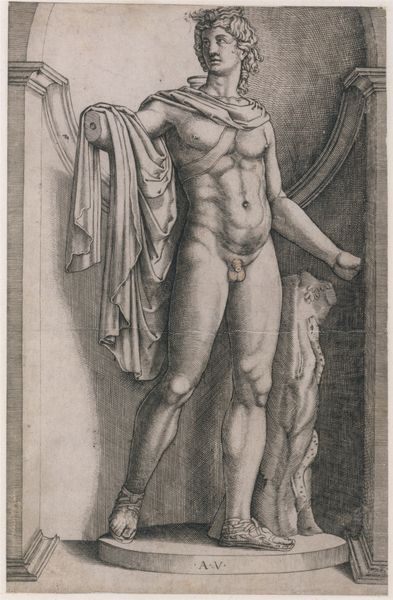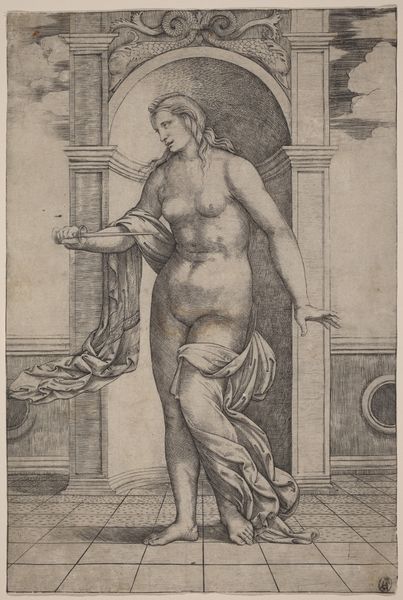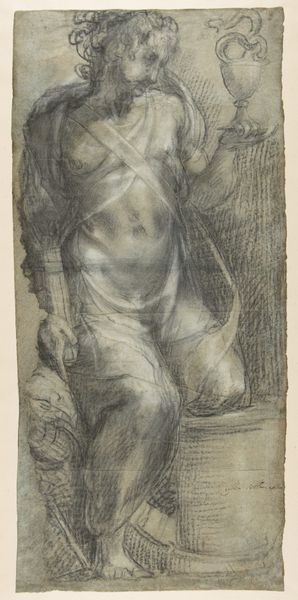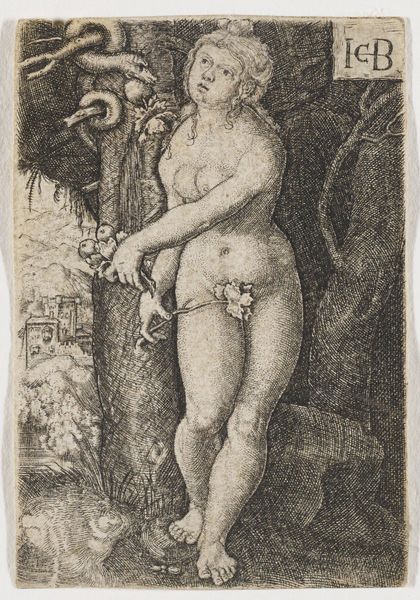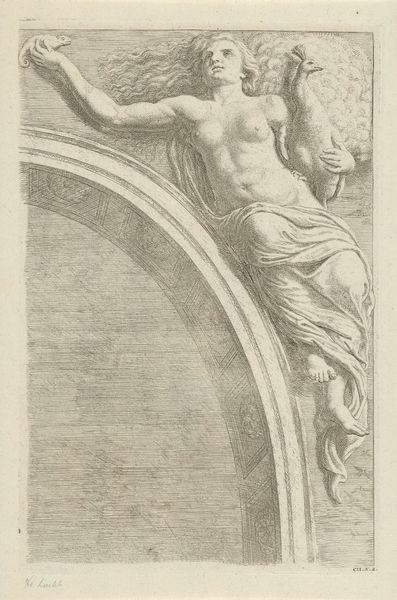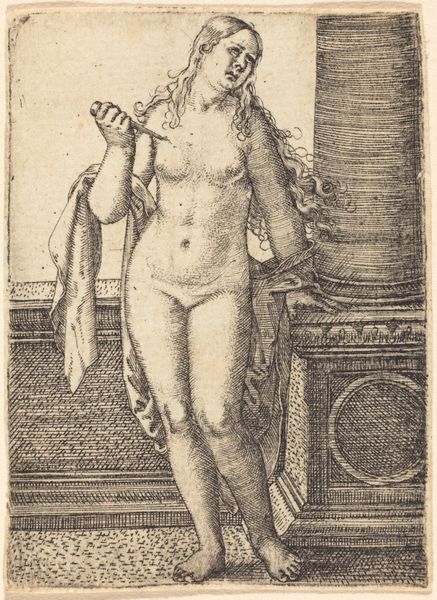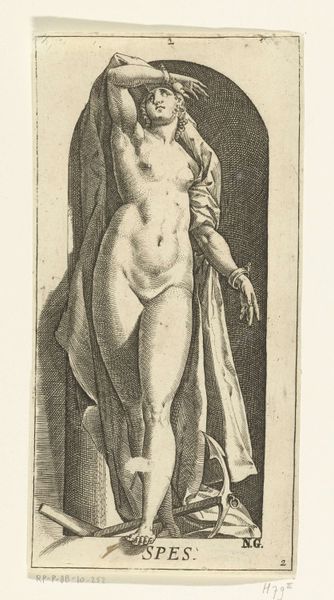
Woman with a winged head standing in a niche 1505 - 1515
0:00
0:00
drawing, print, engraving
#
drawing
# print
#
figuration
#
italian-renaissance
#
nude
#
engraving
Dimensions: Sheet: 3 1/8 × 2 1/16 in. (8 × 5.2 cm)
Copyright: Public Domain
Marcantonio Raimondi made this engraving of a Woman with a Winged Head in Italy, sometime between 1500 and 1534. The winged head and classical niche immediately evoke the visual world of antiquity, a world of Gods and Goddesses that Renaissance artists looked back to for inspiration. In this period, Rome was the undisputed center of artistic production, and its Papal court one of the most important patrons of the arts. Artists in the city, like Raimondi, aimed to revive the aesthetic principles of ancient art. Here, the attention to the idealized human form and the classical setting are just two of the ways that the piece reflects this preoccupation with antiquity. However, we mustn't forget that the Renaissance’s interest in antiquity was as much about establishing social prestige as it was about an abstract love for the distant past. Aristocratic families acquired ancient sculptures to impress others, and Renaissance artists borrowed from classical styles to assert their own sophistication. As art historians, we might consult inventories, letters, and biographies to understand who bought or commissioned these artworks, and what they meant to them. The meaning of art is always rooted in a specific social and institutional context.
Comments
No comments
Be the first to comment and join the conversation on the ultimate creative platform.
